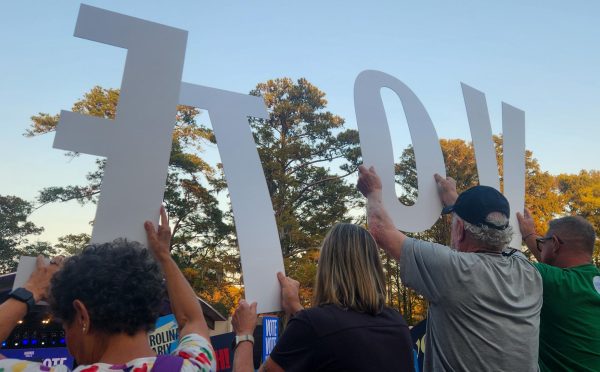Supreme Court Justice Antonin Scalia’s death and its effect on North Carolina
The country received news on Feb. 13 that Supreme Court Justice Antonin Scalia, who was appointed to the bench by President Ronald Reagan, had died at the age of 79. Subsequently, his death has risen questions of how his passing will affect the political atmosphere, especially in North Carolina.
With the upcoming presidential election, tensions on Capitol Hill are high, and party lines are being drawn when it comes to appointing a new Justice to the bench. According to an article in the Lawyer Herald, “most presidential candidates and congressional leaders are battling the replacement out.”
Antonin Scalia was a key player in the judicial branch for the Republican Party, and losing his spot to a democrat would tip the scales out of the party’s favor, according to a CNN report by Erwin Chemerinsky.
While Democrats urge President Obama to appoint a new Supreme Court Justice, the senate majority leader Mitch McConnell has vowed to block any nomination brought before the senate, according to an article by Edward Helmore published in The Guardian.
As explanation for their actions, republicans cite an unwritten rule in the senate called the ‘Thurmond rule’.
The Thurmond rule essentially states that a sitting president cannot appoint a Supreme Court Justice in his last six months of office. However, Democrats argue that this rule is unofficial and that President Obama is not yet in his last six months of office.
The possible appointment of a new judge is very important to the state of North Carolina as a whole, because currently North Carolina is in an appeals process that has reached all the way to the Supreme Court.
“Earlier this month a Circuit Court ruled two of the state’s Congressional Districts were racially gerrymandered and ordered the legislature to redraw them within two weeks,” said Will Michaels and Frank Stasio of WUNC North Carolina Public Radio.
Duke political science professor Kerry Haynie talked about this very issue in an interview with WRAL News stating that “now, with [Scalia] gone, you have a much divided court, so the stakes are very high for both parties to get that fifth vote.”
Haynie also went on to discuss how “very unlikely” it is that the scheduled March 15 primary elections in North Carolina will occur.
However, Republicans would have hoped to keep these two districts as they are until after elections, said Simone Pathé of online publication Roll Call.
“GOP Gov. Pat McCrory and state election officials had asked the Supreme Court to let them use the current congressional [but illegal] districts for the coming election instead since early voting is already under way,” said Pathé. “The Supreme Court was considering that request when Scalia died on Feb. 13.”
And while no appointments have been made thus far, key members of the Democratic Party such as Harry Reid are already backing possible nominees.
In an interview with CNN, Harry Reid publically supported the governor of Nevada as the next Supreme Court Justice. Gov. Brian Sandoval is a moderate Hispanic republican who Reid knows personally.
While this suggestion has yet to be acknowledged by the President or republican leadership, it lends a hopeful outlook for North Carolina. If bipartisan cooperation can be reached it will likely expedite the process of the district appeal, which is currently not being discussed.











